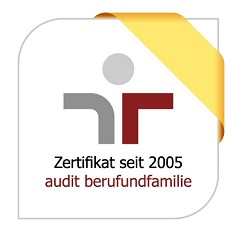PhD Student in Non-Coding Cancer Biology
Reference number: 2025-0202
- München
- Full-time
- DKTK partner site Munich - Institute of Pathology, LMU Munich

“Research for a life without cancer" is our mission at the German Cancer Research Center. We investigate how cancer develops, identify cancer risk factors and look for new cancer prevention strategies. We develop new methods with which tumors can be diagnosed more precisely and cancer patients can be treated more successfully. Every contribution counts – whether in research, administration or infrastructure. This is what makes our daily work so meaningful and exciting.
Together with university partners at seven renowned partner sites, we have established the German Cancer Consortium (DKTK).
For the DKTK partner site Munich, we are seeking for the next possible date a
We are looking for a PhD student in the field of molecular cancer biology to join our new Junior Research Group “Non-Coding Cancer Biology” within the Institute of Pathology.
Our lab investigates the role of the non-coding genome in cancer. We use genome-wide CRISPRi screens to identify oncogenic super-enhancers that are essential to cancer cell survival with the goal of identifying new therapeutic targets. Using novel Cas13d-based screening methods and antisense oligo technology, we then pinpoint specific non-coding transcripts within these essential super-enhancers for therapeutic exploitation. This strategy lays the groundwork for first-of-its-kind precision epigenetic therapies and introduces a paradigm-shifting framework for exploiting the non-coding genome in oncology.
Your Tasks
As a PhD student in our research team you will have the unique opportunity to:
- Gain expertise in the exciting and novel area of non-coding regulatory genomics and epigenomics
- Learn and employ cutting-edge CRISPR methods including epigenome editing, CRISPR-based live-cell imaging, and RNA-targeting CRISPR
- Perform next-generation CRISPR screens including CRISPRi, CRISPRa, and RNA-targeting CRISPR systems (Cas13d)
- Employ bioinformatics platforms and computational pipelines for the analysis of CRISPR screening, RNA sequencing, DNA sequencing, and ChIP-seq datasets
- Experience research at the interface between experimental and computational biology
- Interact within a diverse and multidisciplinary environment of biologists, clinicians, pathologists, and computational scientists within the DKTK network and the LMU Munich
Your Profile
We are looking for a talented and enthusiastic doctoral candidate who is highly motivated to make a meaningful contribution to cancer research. Previous exposure to and experience with basic molecular biology techniques, cell culture, CRISPR, and bioinformatics as well as a profound interest in cancer and genome biology are essential.
You should hold a diploma or master’s degree in biochemistry, biology, molecular/translational medicine, or related subjects. Due to the interdisciplinary framework and close collaboration between wet-lab and computational scientists, good communicative skills as well as fluency in English are essential. Good written and spoken German skills are also required.
We Offer
Excellent framework conditions: state-of-the-art equipment and opportunities for international networking at the highest level
Access to international research networks
Doctoral salary with the usual social benefits
30 days of vacation per year
Flexible working hours
Possibility of part-time work
Family-friendly working environment
Sustainable travel to work: subsidized Germany job ticket
Unleash your full potential: targeted training and mentoring through the DKFZ International PhD Program and DKFZ Career Service
Our Corporate Health Management Program offers a holistic approach to your well-being
Are you interested?
Then become part of the DKFZ and join us in contributing to a life without cancer!
Christine Koppenhöhl
Phone: +49 (0)89/4400-54627
Applications by e-mail cannot be accepted.
We are convinced that an innovative research and working environment thrives on the diversity of its employees. Therefore, we welcome applications from talented people, regardless of gender, cultural background, nationality, ethnicity, sexual identity, physical ability, religion and age. People with severe disabilities are given preference if they have the same aptitude.

